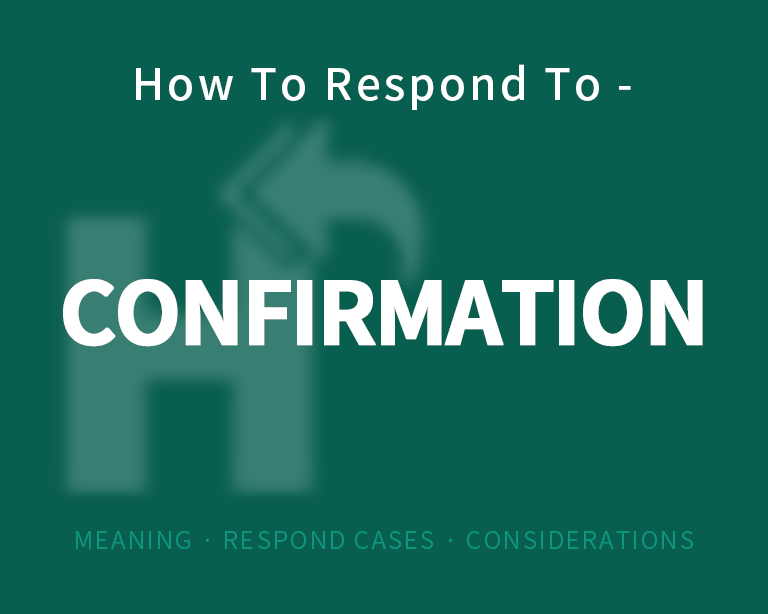The Best Way to Respond to Confirmation?

Responding to confirmation is a difficult thing to do because it can be challenging to know how to acknowledge the other person's statement without sounding dismissive or repetitive. It is important to approach confirmation with a clear and concise response.
What is Confirmation in a Conversation
Confirmation is the act of acknowledging or agreeing with something that has been said. It can be expressed in different ways, from a simple ""yes"" to a more detailed explanation of why you agree.
Specific Cases of Confirmation
Case: Your friend confirms that they will be attending a party with you.
Response: ""Great, I'm looking forward to going with you!""Case: Your colleague confirms that they have completed a task.
Response: ""Thanks for letting me know. I appreciate your hard work on this.""Case: Your partner confirms that they understand your concerns.
Response: ""I'm glad we're on the same page. Let's work together to find a solution.""
Thinking About the Response
When responding to confirmation, it is important to take a step back and think about the situation. Ask yourself if you agree with the statement and how you can acknowledge the other person's perspective. Responding with indifference or disagreement will only cause confusion or conflict.
Considerations
Some considerations to keep in mind when responding to confirmation include:
- Keeping a clear and concise tone
- Acknowledging the other person's perspective and feelings
- Being specific about what you're confirming
- Avoiding dismissive or repetitive responses
- Being open to different perspectives and interpretations
Conclusion
In summary, responding to confirmation can be challenging, but it is important to approach the situation with a clear and concise response. By acknowledging the other person's perspective and being specific about what you're confirming, we can improve our communication skills and strengthen our relationships. Remember to practice active listening and communication skills in all situations.